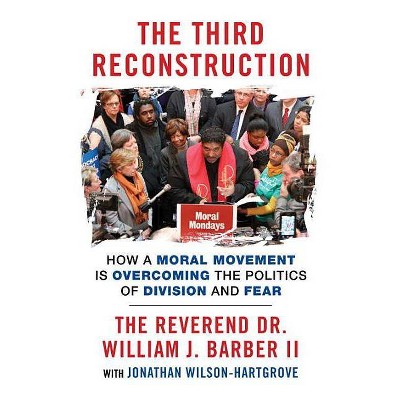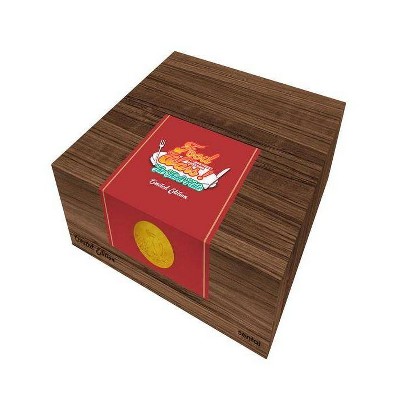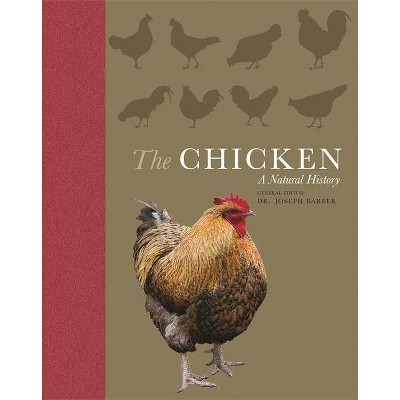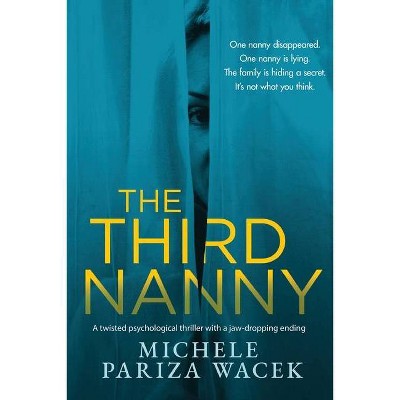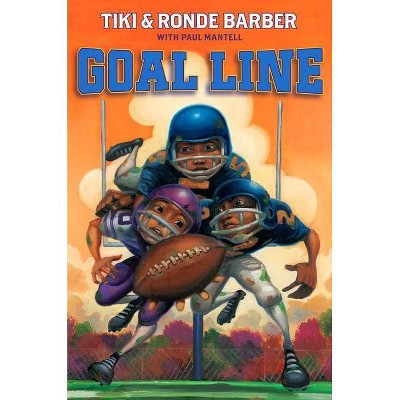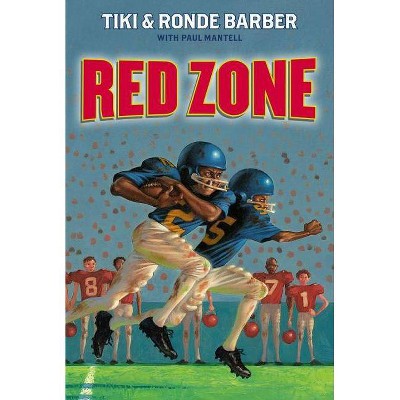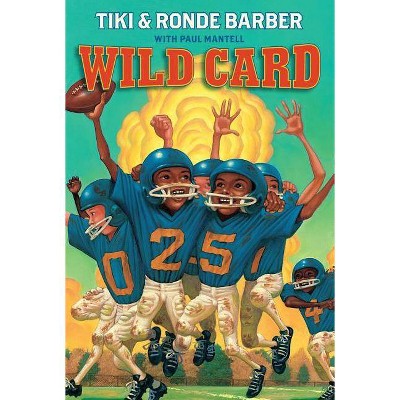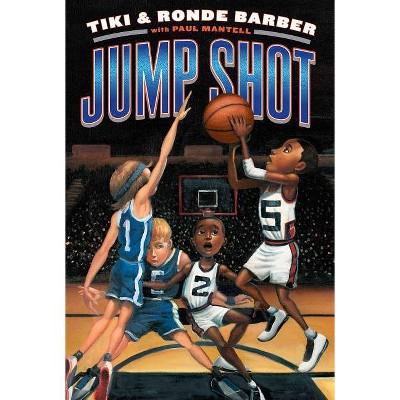The Third Plate - by Dan Barber (Paperback)
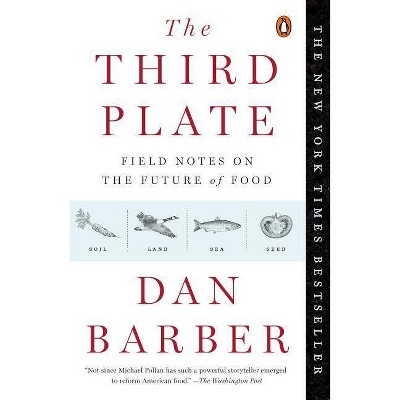
Similar Products
Products of same category from the store
AllProduct info
<p/><br></br><p><b> About the Book </b></p></br></br> "Barber explores the evolution of American food from the 'first plate,' or industrially-produced, meat-heavy dishes, to the 'second plate' of grass-fed meat and organic greens, and says that both of these approaches are ultimately neither sustainable nor healthy. Instead, Barber proposes Americans should move to the 'third plate,' a cuisine rooted in seasonal productivity, natural livestock rhythms, whole-grains, and small portions of free-range meat"--Provided by publishe<p/><br></br><p><b> Book Synopsis </b></p></br></br><b>"Not since Michael Pollan has such a powerful storyteller emerged to reform American food." --<i>The Washington Post</i></b> <p/>Today's optimistic farm-to-table food culture has a dark secret: the local food movement has failed to change how we eat. It has also offered a false promise for the future of food. In his visionary <i>New York Times</i>-bestselling book, chef Dan Barber, recently showcased on Netflix's <i>Chef's Table</i>, offers a radical new way of thinking about food that will heal the land and taste good, too. Looking to the detrimental cooking of our past, and the misguided dining of our present, Barber points to a future "third plate" a new form of American eating where good farming and good food intersect. Barber's <i>The Third Plate </i>charts a bright path forward for eaters and chefs alike, daring everyone to imagine a future for our national cuisine that is as sustainable as it is delicious.<p/><br></br><p><b> Review Quotes </b></p></br></br><br>"[A]uthor Dan Barber's tales are engaging, funny and delicious . . .<i> The Third Plate</i> invites inevitable comparisons with Michael Pollan's <i>The Omnivore's Dilemma</i>, which Barber invokes more than once. And, indeed, its framework of a foodie seeking truth through visits with sages and personal experiments echoes Pollan's landmark tome (not to mention his passages on wheat cultivation, which, astonishingly, best Pollan's corn cultivation chapters by many pages.) But at the risk of heresy, I would call this <i>The Omnivore's Dilemma 2.0 . . .</i> <i>The Third Plate</i> serves as a brilliant culinary manifesto with a message as obvious as it is overlooked. Promote, grow and eat a diet that's in harmony with the earth and the earth will reward you for it. It's an inspiring message that could truly help save our water, air and land before it's too late." --<b><i>The Chicago Tribune</i></b> <p/>"Not since Michael Pollan has such a powerful storyteller emerged to reform American food. . . . Barber is helping to write a recipe for the sustainable production of gratifying food." --<b><i>The Washington Post</i></b> <p/> "There hasn't been a call-to-action book with the potential to change the way we eat since Michael Pollan's 2006 release, <i>The Omnivore's Dilemma</i>. Now there is. Dan Barber's <i>The Third Plate: Field Notes on the Future of Food</i> is a compelling global journey in search of a new understanding about how to build a more sustainable food system. . . . <i>The Third Plate</i> is an argument for good rather than an argument against bad. This recipe might at times be challenging, but what's served in the end is a dish for a better future. . . . Barber writes a food manifesto for the ages." --<b><i>Pittsburgh-Post Gazette</i></b> <p/>"Compelling . . . <i>The Third Plate</i> reimagines American farm culture not as a romantic return to simpler times but as a smart, modern version of it . . . <i>The Third Plate</i> is fun to read, a lively mix of food history, environmental philosophy and restaurant lore . . . an important and exciting addition to the sustainability discussion." --<i><b>The Wall Street Journal</b></i> <p/> "When <i>The Omnivore's Dilemma</i>, Michael Pollan's now-classic 2006 work, questioned the logic of our nation's food system, 'local' and 'organic' weren't ubiquitous the way they are today. Embracing Pollan's iconoclasm, but applying it to the updated food landscape of 2014, <i> The Third Plate</i> reconsiders fundamental assumptions of the movement Pollan's book helped to spark. In four sections--'Soil, ' 'Land, ' 'Sea, ' and 'Seed'--<i>The Third Plate</i> outlines how his pursuit of intense flavor repeatedly forced him to look beyond individual ingredients at a region's broader story--and demonstrates how land, communities, and taste benefit when ecology informs the way we source, cook, and eat." --<b><i>The Atlantic</i></b> <p/>"Each grain represents an agricultural virtue: Rye, for example, builds carbon in the soil. Taken together, they argue for a new way of thinking about the production and consumption of food, a 'whole farm' approach that Mr. Barber explores, eloquently and zestfully, in <i>The Third Plate: Field Notes on the Future of Food . . .</i> Mr. Barber's subjects tend to be colorfully eccentric and good talkers, capable of philosophizing by the yard. To put their efforts in context, Mr. Barber unobtrusively weaves in a hefty amount of science and food history. Readers will put the book down having learned quite a bit . . . Mr. Barber is a stylish writer and a funny one, too. --<i><b>The New York Times</b></i> <p/>"Barber's work is a deeply thoughtful and-offering a 'menu for 2050'-even visionary work for a sustainable food chain." --<b><i>Publishers Weekly</i></b> <p/>"Dan Barber's new book, <i>The Third Plate</i>, is an eloquent and thoughtful look at the current state of our nation's food system and how it must evolve. Barber's wide range of experiences, both in and out of the kitchen, provide him with a rare perspective on this pressing issue. A must read." --<b>Vice President Al Gore</b> <p/> "In this compelling read Dan Barber asks questions that nobody else has raised about what it means to be a chef, the nature of taste, and what 'sustainable' really means. He challenges everything you think you know about food; it will change the way you eat. If I could give every cook just one book, this would be the one." --<b>Ruth Reichl, author of <i>Garlic and Sapphires</i> and <i>Tender at the Bone</i></b> <p/>"Dan Barber is not only a great chef, he's also a fine writer. His vision of a new food system--based on diversity, complexity, and a reverence for nature--isn't utopian. It's essential." --<b>Eric Schlosser, author of <i>Fast Food Nation</i> and <i>Command and Control</i></b> <p/> "I thought it would be impossible for Dan Barber to be as interesting on the page as he is on the plate. I was wrong." --<b>Malcolm Gladwell, author of <i>David and Goliath</i> and <i>The Tipping Point</i></b> <p/> "<i>The Third Plate</i> is one of those rare books that's at once deft and searching--deeply serious and equally entertaining. Dan Barber will change the way you look at food." --<b>Elizabeth Kolbert, author of <i>The Sixth Extinction</i> and <i>Field Notes from a Catastrophe</i></b> <p/>"After my first meal at Blue Hill, I paid Dan the ultimate farmer compliment. I told him that he made vegetables taste almost fresher after he had prepared them than when the farmer harvested them. Now I am equally impressed with his writing. Food has stories and Dan tells the stories as well as he cooks. If you want to know about food, read this book." --<b>Eliot Coleman, author of <i>The New Organic Grower</i> and <i>The Four Season Farm Gardener's Cookbook</i></b> <p/> "Dan Barber writes with the restrained lushness with which he cooks. In elegant prose, he argues persuasively that eating is our most profound engagement with the non-human world. How we eat makes us who we are and makes the environment what it is. It all needs to change, and Barber has written a provocative manifesto that balances brave originality and meticulous research. His food is farm-to-table; his eloquent, impassioned book is farm-to-heart." --<b>Andrew Solomon, author of <i>Far from the Tree</i> and <i>The Noonday Demon</i></b> <p/> "Dan Barber is as fine a thinker and writer as he is a chef--which is saying a great deal. This book uses its ingredients--the insights of some of the finest farmers on the planet--to fashion something entirely new: a recipe for the future." --<b>Bill McKibben, author of <i>Wandering Home</i></b><br><p/><br></br><p><b> About the Author </b></p></br></br><b>Dan Barber</b>, who was recently showcased on Netflix's <i>Chef's Table</i>, is the executive chef of Blue Hill, a restaurant in Manhattan's West Village, and Blue Hill at Stone Barns, located within the nonprofit farm Stone Barns Center for Food & Agriculture. He lives in New York City.
Price History
Cheapest price in the interval: 12.29 on March 10, 2021
Most expensive price in the interval: 16.99 on November 8, 2021
Price Archive shows prices from various stores, lets you see history and find the cheapest. There is no actual sale on the website. For all support, inquiry and suggestion messagescommunication@pricearchive.us
![Food Wars! The Third Plate [Blu-ray]](https://pisces.bbystatic.com/image2/BestBuy_US/images/products/3483/34839665_so.jpg)
